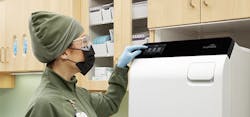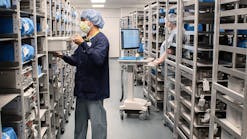Elsewhere in this month’s edition of Healthcare Purchasing News sits an editorial exploration of sustainability, one of the key components that makes up what’s called the “circular economy.”
Similarly, Sterile Processing & Distribution (SPD) – in department and functionality – represents a key component of what could be classified as a “circular healthcare reality.” It goes something like this:
- Without SPD, there can be no surgery – including minimally invasive procedures.
- Without surgery, there can be no fixing and healing of patients.
- Without the fixing and healing of patients, people die more quickly.
- Without people propagating, there is no need for healthcare services.
- Without healthcare services, there is no need for surgery.
- Without surgery, there is no need for SPD.
Here’s the bottom line that HPN has promoted every November, consistently for 18 years that you can dismiss this axiom at your own peril: Sterile Processing (department and function) is essential.
And with surgical techniques and technologies advancing every year – particularly in the area of minimally invasive procedures that rely on rigid and flexible endoscopic equipment and robotics – it’s essential for SPD professionals to keep pace with how to care for the delicate, expensive and high-tech tools wielded by surgeons.
From pre-treating to cleaning to disinfecting/sterilizing to aerating/drying to repairing to storing and to repeating the process continuously until replacement is needed, SPD is responsible for some of a healthcare organization’s more costly assets that assist in maintaining a patient’s most costly asset – life.
Because SPD takes this mission and vision seriously, so has HPN for all 45 years of its publishing history and annually for the last 18 years with dedicated, themed content each November. If you need proof, be sure to visit HPN HPN Online (www.hpnonline.com) and use the search term “Endoscope Care.”





